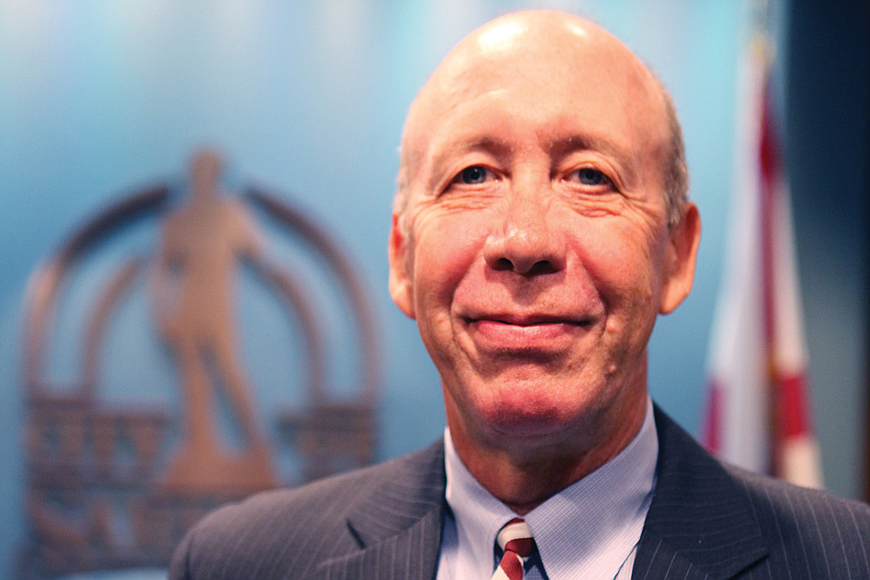- April 18, 2024
-
-
Loading

Loading

At a glance, the City Commission’s evaluation of the three charter officials paints a rosy picture of the work done by the city manager, city attorney and city auditor and clerk.
On average, all three received grades of above expectations. And yet at a Tuesday meeting, the only discussion regarding the reviews focused on tensions surrounding City Auditor and Clerk Pamela Nadalini and City Commissioner Susan Chapman.
Chapman, whose evaluation rated the auditor and clerk “below expectations” in 10 of 14 categories, presented a detailed public critique of Nadalini. Chapman included pension management issues and employee turnover among her concerns, but also alleged Nadalini has an abrasive and vindictive management style.
As an example, she pointed to a recent dispute between Nadalini and City Manager Tom Barwin over a $1.5 million budget request for a new records facility. When Barwin concluded the expenditure was not appropriate, he said Nadalini became upset and threatened to file a charter violation charge against him.
In a June 22 memo to commissioners, Barwin said Nadalini has a history of being uncooperative during efforts to coordinate between city departments.
“Both this week and on previous occasions, Ms. Nadalini has been unwilling to have those conversations and has become angry, hostile and threatening,” Barwin wrote in the memo.
Nadalini said she would more substantively address Chapman’s criticism at a later date, but she offered a brief rebuttal. She said Tuesday’s meeting was the first time she was hearing about many of the issues from Chapman, and most of the incidents in question — which date back to as early as 2011 — had been sensationalized.
As for the clash with Barwin, she said each charter official is entitled to present a budget to the commission — and Barwin was overstepping his bounds by failing to include her request.
“I was put in a situation where I had no choice but to make him understand he was, in fact, violating the charter,” Nadalini said.
The discord was an inauspicious conclusion to the first formal review of the officials since 2011. Despite the public conflict, Nadalini said she felt the review process was largely productive.
The rest of the commission graded Nadalini as exceeding expectations. She said the reviews provided an opportunity to have a meaningful dialog with commissioners, and she added that officials could always feel free to discuss issues with her.
“I have an open door policy at any given time,” Nadalini said.
“I think it’s much more meaningful if those conversations can be had in as close to as real time as possible.” — Tom Barwin
The other charter officials expressed some ambivalence about the value of the exercise. City Manager Tom Barwin said the rubric-based evaluation is a product of the public nature of the process, which he thinks negates some of the benefit.
“I think it’s much more meaningful and would have much more effect if those conversations can be had in as close to as real time as possible,” Barwin said.
Barwin’s skepticism about performance evaluations extends to city staff, with department heads going years without a formal review. Tim Litchet, the city’s director of neighborhood and development services, hasn’t had a formal evaluation since 2006.
Barwin has a book in his office on the subject titled “Abolishing Performance Appraisals.” Although he wouldn’t go that far, he says he’s constantly seeking the most effective way to communicate organizational needs.
“What has worked best for me is sitting across the table from one another, reviewing the period of time we’re discussing,” he said.
City Attorney Robert Fournier said the evaluation process didn’t turn up anything unexpected for him. Although he understands there are different thoughts on how to conduct the reviews, he’s letting the commission take the lead on finding the best way to appraise the charter officials.
“I figure since I’m the one being evaluated, I try not to say much about it,” Fournier said. “Whatever works best for the commissioners is what they’re going to do.”